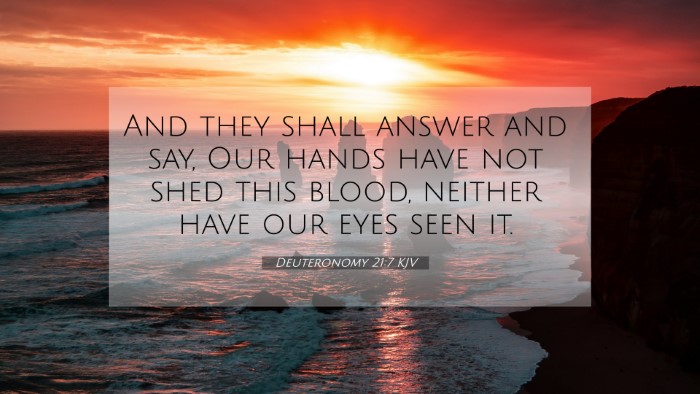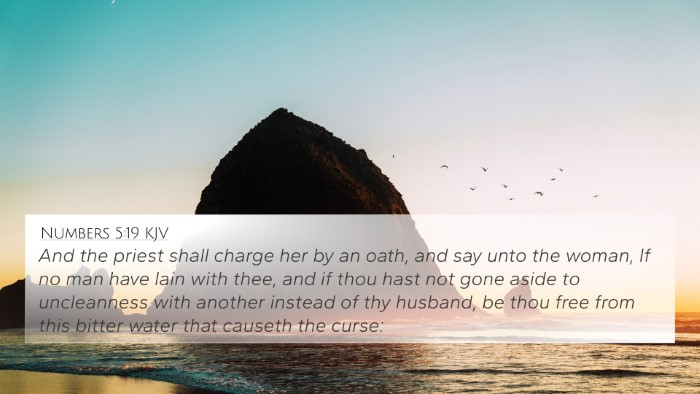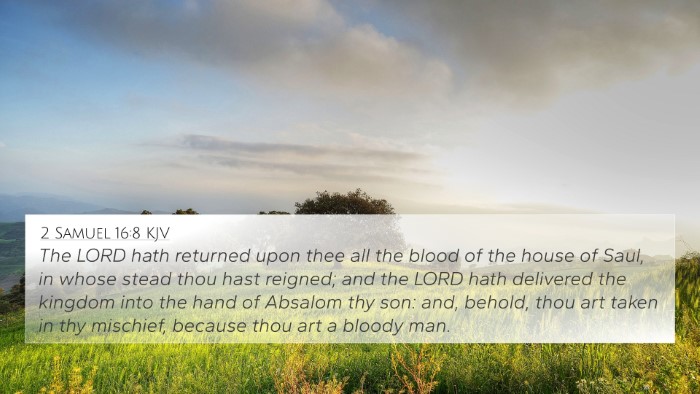Understanding Deuteronomy 21:7
Verse: "Then they shall answer and say, ‘Our hands have not shed this blood, nor have our eyes seen it.’" (Deuteronomy 21:7)
Summary of Meaning
This verse comes from a larger context regarding the procedures related to a murder that has occurred in a city, emphasizing the community's responsibility and guilt in cases of unsolved murders. The leaders or representatives of the city are required to publicly declare their innocence in the matter, symbolizing communal integrity and the obligation of the townsfolk to care for the sanctity of life.
Commentary Insights
-
Matthew Henry:
Henry underscores the notion that the elders of the city must absolve themselves of guilt concerning the unaddressed crime. Their declaration serves as a formal acknowledgment that they have neither directly caused harm nor witnessed the event, highlighting accountability.
-
Albert Barnes:
Barnes elaborates on the serious implications of murder within a community, noting that the bloodshed disrupts the social fabric. The elders' statements are crucial for preserving peace and order, thereby performing a vital role in maintaining the law of God.
-
Adam Clarke:
Clarke emphasizes the ritualistic nature of the declaration, viewing it as both a symbolic and practical act to reassure the community of their innocence. He points out that the act serves to sensitively address communal relations and spiritual purity.
Bible Cross-References
- Numbers 35:33-34: Discusses the atonement for bloodshed and the desolation caused by murder.
- Exodus 21:12: Outlines the consequences for deliberate murder.
- Deuteronomy 19:10: Addresses the prevention of innocent bloodshed in the land.
- Isaiah 59:3: Highlights how sin, including murder, leads to separation from God.
- Matthew 5:21-22: Jesus deepens the law’s application regarding anger and hatred.
- Romans 13:4: The governing authorities are intended to maintain justice and protect life.
- 1 John 3:15: Details the spiritual ramifications of hate, equating it to murder.
Thematic Bible Verse Connections
The theme of responsibility for public crimes connects across various scriptures:
- In Leviticus 17:10-12, the sanctity of life is highlighted, indicating the severity of bloodshed.
- Galatians 6:7 speaks to the consequences of one's actions, underlining accountability.
- Proverbs 6:16-17 declares that God hates the shedding of innocent blood, connecting deeply with the warning in Deuteronomy.
Conclusion
Deuteronomy 21:7 reflects the gravity with which the community must handle incidents of murder. This verse not only implicates a legal and moral obligation but also lays the foundation for the themes of justice, community responsibility, and the pursuit of peace throughout Scripture.







